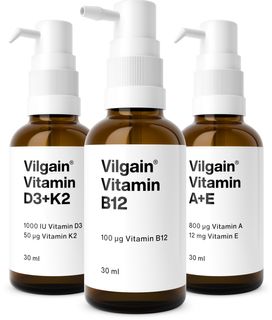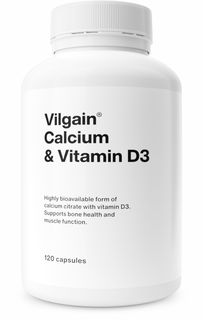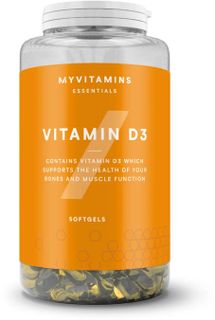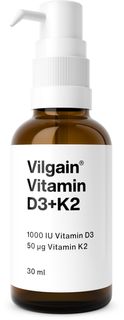
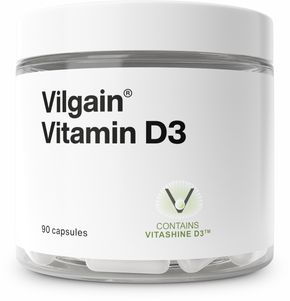
Dietary supplements with vitamin D
Vitamin D is important for the proper development and health of bones and teeth, and it also contributes to our immunity. It can be replenished by exposure to the sun, but most of the population is deficient, especially during the winter months. During this period, it is advisable to take a dietary supplement with this vitamin. Vitamin D can also be partially supplemented from the diet - oily fish, seafood, eggs or dairy products.
Forms of vitamin D
Vitamin D comes in several forms. The main ones found in dietary supplements include:
- Vitamin D2 (ergocalciferol) is a plant‑derived vitamin that is mainly obtained from fungi growing in the sun or yeast. Because of its origin, it is popular among vegans and vegetarians;
- vitamin D3(cholecalciferol) is a vitamin that is naturally produced in the skin when exposed to the sun. This form is several times more effective than vitamin D2. Vitamin D3 in supplements is most often derived from lanolin or fish oil. Vegan vitamin D3 is extracted from seaweed or lichen.
Effects of vitamin D
Vitamin D is essential for the human body. Sufficient intake can reduce the risk of certain diseases. It is also crucial in childhood, when it ensures proper development. Vitamin D contributes to:
- normal blood calcium levels,
- the maintenance of normal bones and teeth,
- normal immune system function, and
- the maintenance of normal muscle function.
In addition, vitamin D may regulate mood and reduce depression or contribute in part to weight loss by engaging in normal metabolic function.
Vitamin D deficiency
Natural production of vitamin D can be negatively affected by living in a highly polluted area, spending a large part of the day indoors, skin phototype or excessive use of sunscreen. Vitamin D deficiency can then manifest itself in moodiness, fatigue, muscle and bone pain, or increased incidence of fractures. Long‑term deficiency can also contribute to the development of autoimmune or cardiovascular disease.
Vitamin D dosage
Although the legally recommended dose is 200 UI (5 μg) - and double that for children and pregnant and breastfeeding women - a dose of 1000‑2000 UI of vitamin D per day is generally considered a safe amount. This amount should ensure adequate blood levels of vitamin D. Higher doses should be consulted with a doctor.
Vitamin D is classified as a fat‑soluble vitamin, and it is therefore possible to overdose on it. However, this is not a very common occurrence and can be caused by excessive use of vitamin D supplements. Overdose is manifested, for example, by nausea, vomiting, weakness or dizziness.
Vitamin D supplements are most commonly taken in the form of tablets and capsules, but supplements in the form of drops or sprays are also available for easier administration.
